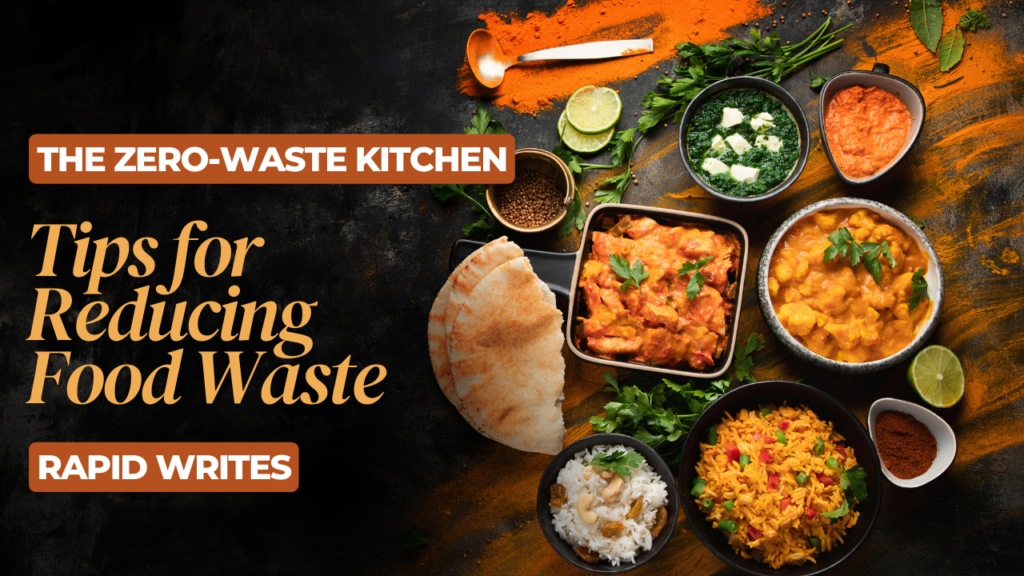Introduction
In today’s world, where climate change and environmental sustainability are at the forefront of global discussions, every small action counts. One such action is reducing food waste, a significant yet often overlooked contributor to environmental degradation. Not only does minimizing waste in our kitchens help the planet, but it also saves money and promotes a healthier lifestyle. This blog post aims to guide you through creating a zero-waste kitchen by focusing on three critical aspects: planning, shopping, and cooking.
The Importance of Planning
Meal Planning
The foundation of a zero-waste kitchen lies in effective meal planning. By deciding what to cook in advance, you can avoid purchasing unnecessary items that might end up in the bin. A simple weekly meal planner app or a notepad can help you organize your meals and ensure that you buy only what you need.
Inventory Checks
Before heading to the grocery store, take a moment to check what you already have. This practice prevents the overbuying of items you already own, reducing waste and saving you money. Organizing your pantry and fridge can make this process smoother, ensuring that no item is forgotten.
Shopping Lists
Armed with the knowledge of what you need, creating a shopping list is the next step. A well-thought-out list, based on your meal plan, can prevent impulse buys that often lead to waste. Organizing your list by store sections can also make your shopping trip more efficient and less stressful.
Smart Shopping Strategies
Buy in Bulk
Purchasing non-perishable items in bulk can significantly reduce packaging waste and is often more economical. When shopping in bulk, consider bringing your own containers to minimize plastic use.
Choose Local and Seasonal Produce
Opting for local and seasonal produce is not only better for the environment due to lower transportation emissions, but it also ensures you’re eating fresher and tastier food. Local farmers’ markets and CSA (Community Supported Agriculture) boxes are great sources for seasonal produce.
Understanding Expiry Dates
A common reason for throwing away food is misunderstanding expiry dates. “Best before” dates often indicate quality rather than safety, meaning food can still be consumed after this date if it looks, smells, and tastes fine. Learning the difference can save a lot of food from being wasted.
Cooking and Storage Techniques
Creative Leftovers
View leftovers as an opportunity rather than a burden. Many leftovers can serve as the base for new meals. For instance, last night’s roasted vegetables can easily transform into a hearty omelet or a comforting soup.
Proper Food Storage
Knowing how to store different types of food can extend their shelf life. For example, storing herbs in a glass of water in the fridge can keep them fresh for much longer. Investing in good quality containers and learning the best storage methods can significantly reduce food spoilage.
Composting
Even with the best intentions, some waste, like vegetable peels and coffee grounds, is inevitable. Composting these items can turn waste into valuable fertilizer for your garden. If you don’t have space for a compost bin, look for local community gardens or composting services that accept organic waste.
Conclusion
Adopting a zero-waste kitchen is a journey of mindful living that benefits not just our planet but also our health and wallets. By focusing on planning, shopping, and cooking strategies, we can significantly reduce the amount of waste we generate. Every small step towards a zero-waste kitchen is a leap towards a more sustainable future.



